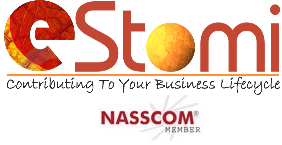The challenging economic climate has caused many organizations’ IT budgets to shrink, making it harder for them to adopt new technologies that increase efficiency and output. Proprietary software can eat into an organization’s budget – they’re expensive to buy and the annual licensing fees are an ongoing expense. Another challenge that proprietary software poses is the fact that integrating these tools can lead to compatibility issues – along with the costs associated with application integration a major issue.
In this environment, open-source software offers several significant benefits to companies who are faced with the challenges posed by proprietary applications:
- Integrate into multiparty environments: As no proprietary code is required to manipulate and modify the software, open-source applications can be easily integrated into multiple-party environments.
- Eliminate the costs of licensing fees: Open-source software has no license fees so you can spend your budget on getting top level support.
- Get expert advice for free: The huge international community of open-source users and developers are more than happy to share advice and their experiences, allowing businesses to take advantage of the best practice information the open-source community supplies.
- Flexible and customizable: Open-source allows anyone to take the code and manipulate it to deliver new functionality, better integration and other features.
- Save money: The licenses, documentation and support costs are very low, with no obligation to subscribe to annual licensing, which means that time to ROI is far shorter.
- International community and increasing network: This community aspect enables individuals or companies using open-source software to benefit from the advice and support of a large global network of users and developers.
Many companies stand against open source software because we live in a World where myths gain more importance?
One of the major concerns businesses have with open-source tools is the lack of reliability. Since open-source software allows anyone to edit and modify the code, there is a big stigma that open-source software is not as effective as its propriety counterparts. Other concerns include available support and ongoing development.
this is just a perception image, have been proven false as the number of developers who are available to service and support open-source software exponentially grown and the fact that open-source tools are just as reliable as licensed applications and these tools are becoming far more widely understood.
However, the demand for open-source applications is increasing daily in the software market, which is driving developers to create more of these tools. There has been a dramatic increase in investment in open-source as more and more businesses are considering a migration, and year on year there is an increase in the number of businesses enquiring about open-source and migrations to this type of software.
Another major factor to implement open-source solution is by partnering with an experienced company.
When it comes to implementing open-source solutions, businesses can benefit from partnering with an experienced and skilled outsource company that can deliver implementations and support along with competitive prices and better quality software tools.
eStomi prides on providing open source consulting. In a span of 4 years, it has built a world class team of open source consultants whose expertise range in Perl, PHP, Bugzilla, MySQL, Zabbix, Nagios, Joomla, Linux (Ubuntu, RedHat, CentOS, Fedora), Apache etc. More importantly, our experts have a good understanding of the domain and how open source technologies can be leveraged, especially when customers are in dire need of migrating from proprietary licensed solution to a better cost effective open source solution.
For more information on service details, contact.
Connect@eStomi.net
Call: +91 9740922224
